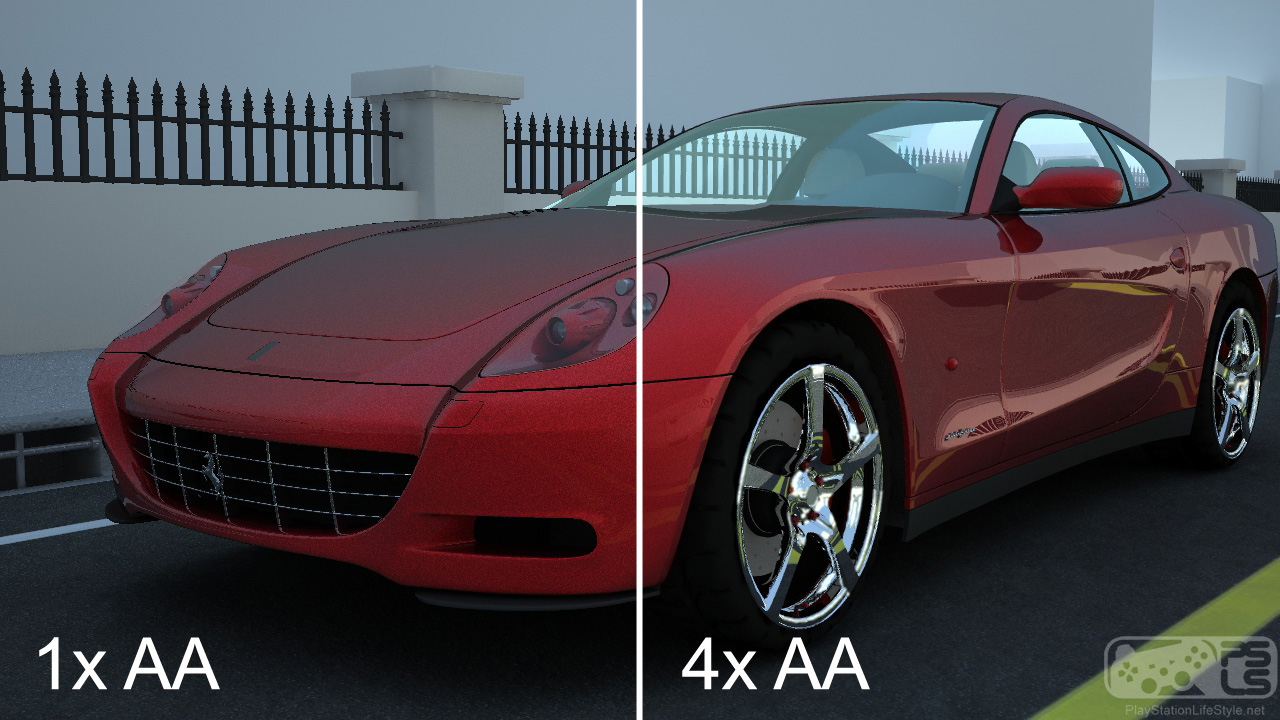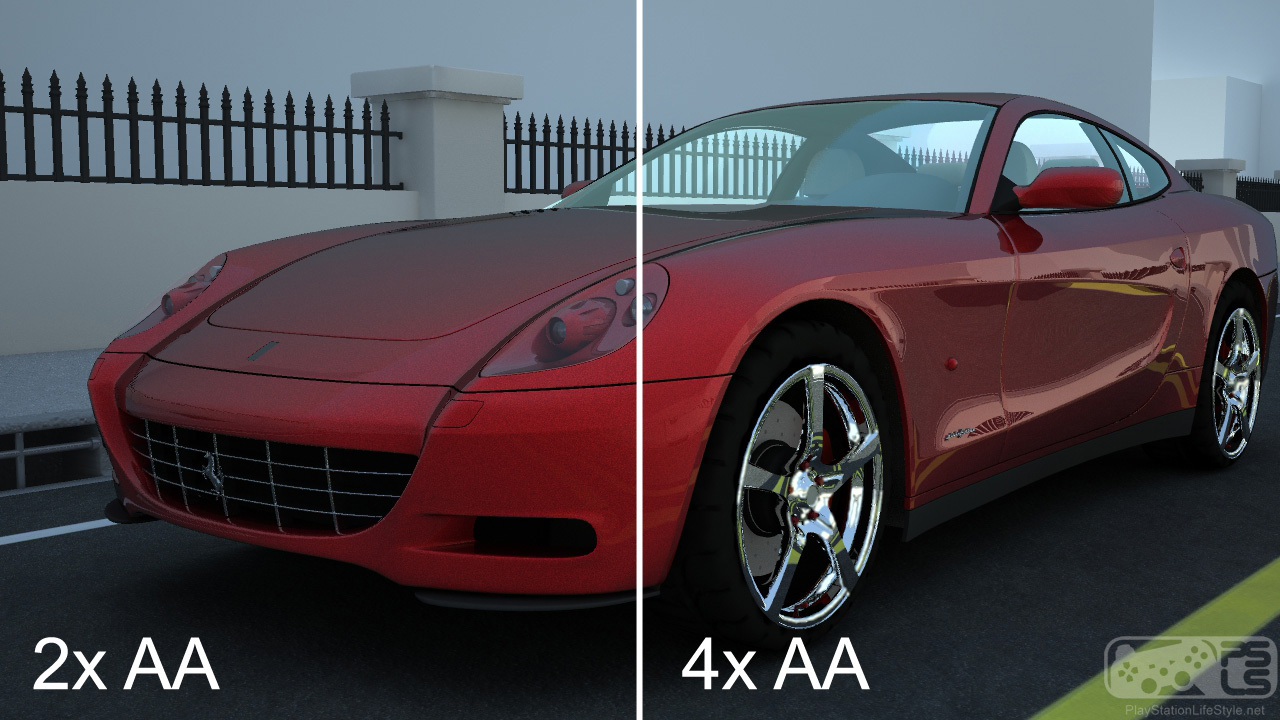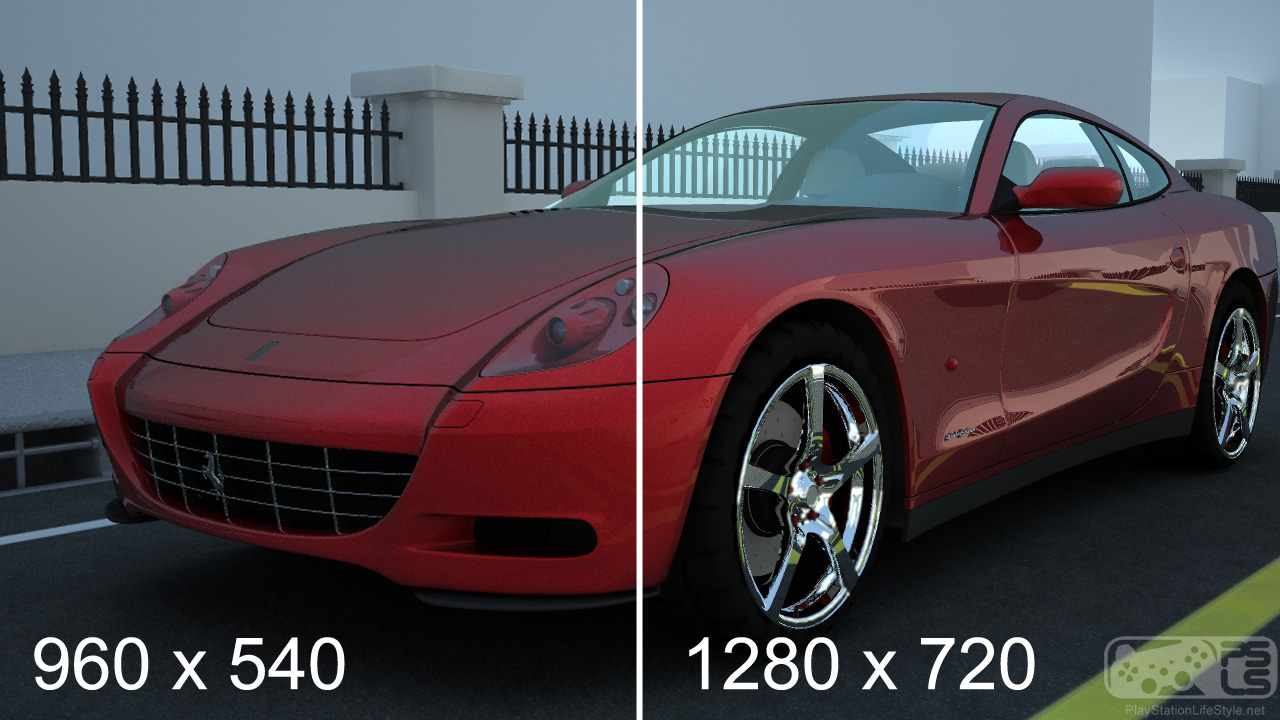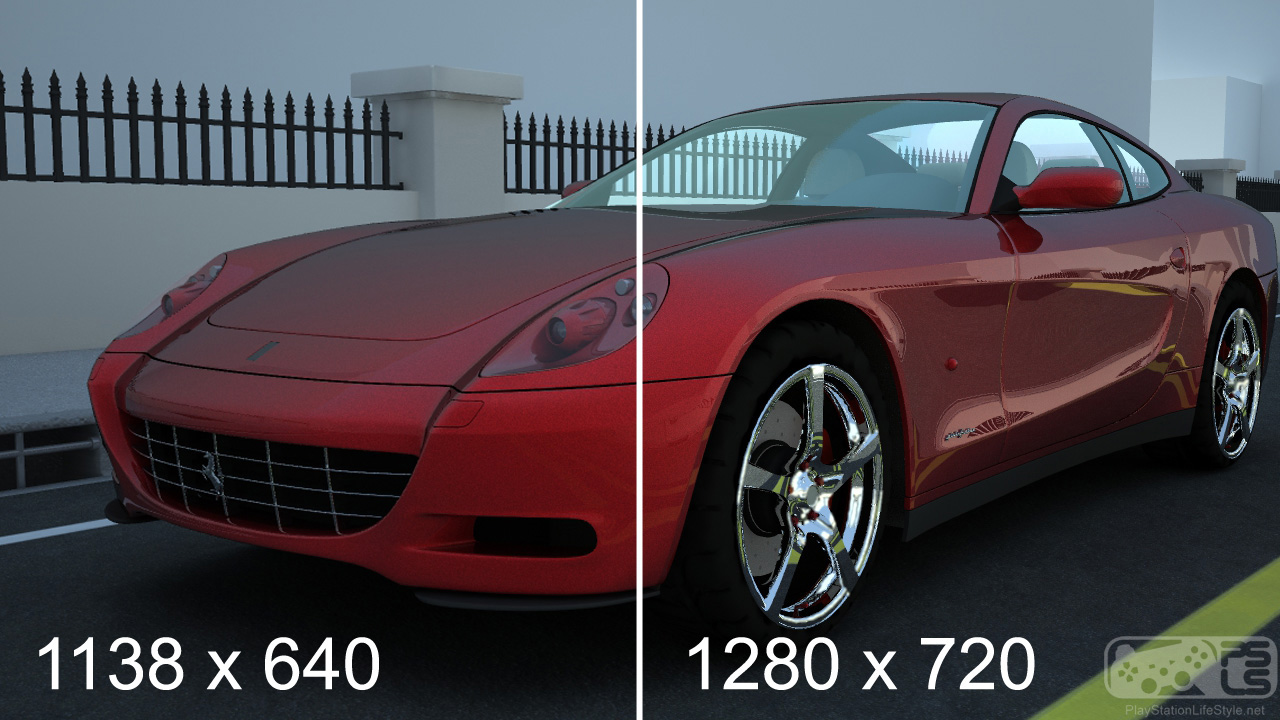These two images were rendered at 720p, and there is a huge gap in quality between the 1x AA and 4x AA settings, but not between the 2x and 4x AA settings. While 2x AA smooths out the edges of objects fairly well, the leap to 4x AA has the added benefit of cleaning up the texture quality. The 1x AA scene on the other hand looks absolutely vile, with object edges and texture resolution taking a significant hit.


The next two images were rendered with 4x AA, then upscaled with bilinear filtering. But even with the great upscaling, there’s still some very noticeable aliasing artifacts in the 540p image since pixels from the original image are being interpolated onto a larger canvas. Because of this, the 4x AA steadily becomes more worthless as the frame buffer is upscaled from an increasingly smaller resolution. The performance benefits aren’t as immediately noticeable as changing the AA level, but the visual sacrifices that come up upscaling are also controllable in smaller increments.
The smartest decision would be to keep the AA level at 4x and upscale from 640p. Most gamers would be hard pressed to notice the difference between an upscaled 640p and raw 720p image on their television screen, so long as 4x AA is being used. And should the game be running at a great framerate already at 720p, the developer would be able to increase shader effects and or lighting quality by a small degree by dropping the resolution to 640p, making the game look even better (and at sub-HD, no doubt).


Those who chastise games for running at a certain resolution and/or AA level should, after reading this article, be able to make a more educated guess as to why the developer chose those settings. And hopefully the scandal-like tone that surrounds such information will be more muted and understanding. It’s far more constructive to praise developers who do attain a high level of technical performance than to criticise those who fall short of our percieved goals. After all, there’s bigger things to complain about when it comes to videogames, like framerates…





